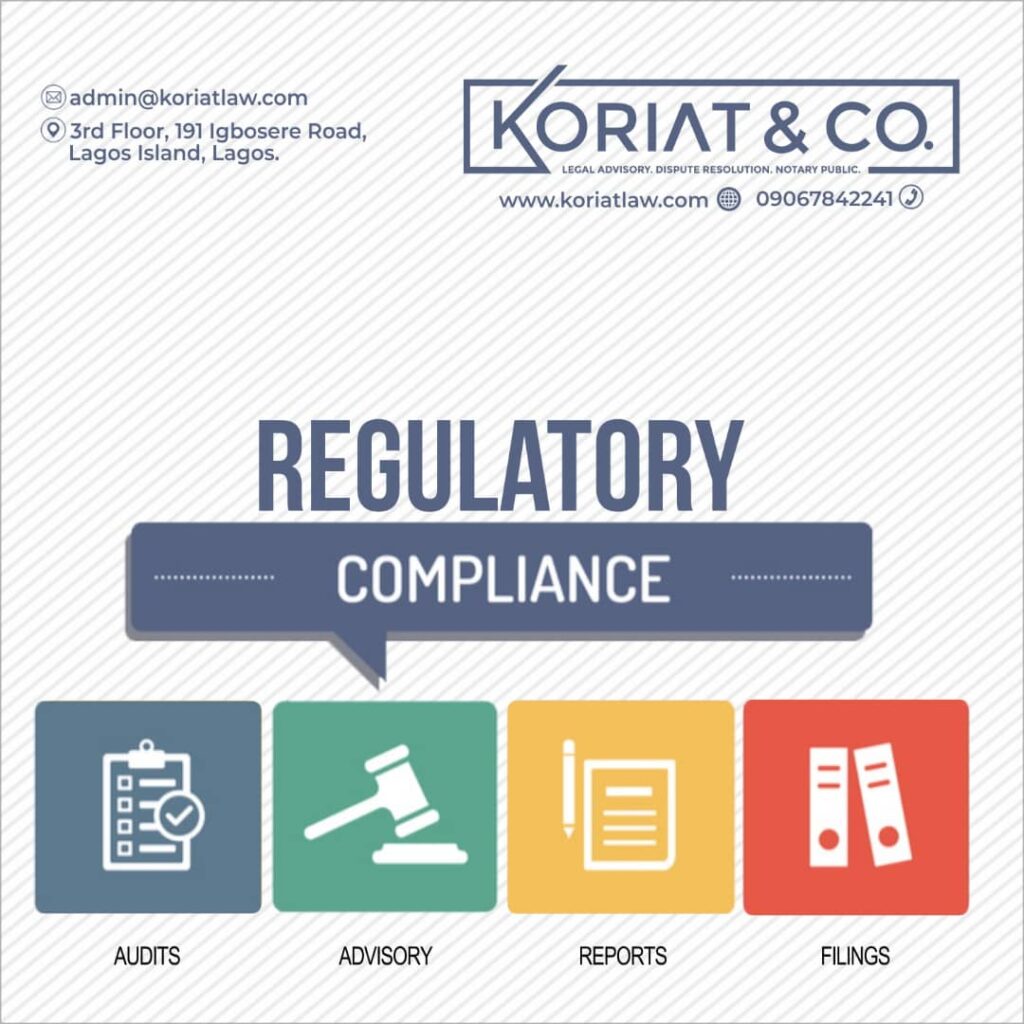
The process of opening a bank account for a company in Nigeria is a seamless exercise if the right requirements are put together and you are dealing with the right financial institution.
Sometimes, from our experience, the depth or range of transaction experience of a particular bank (branch) may be a relevant factor in whether they know the right requirements for the bank account process and how fast they can handle your account opening instructions.
A client had a shocking experience when a marina branch of a foremost commercial bank asked the client, a money lending business, to present a licence of the Central Bank of Nigeria before a bank account could be opened for the client. Every effort to convince the branch officials that a money lender does not require a CBN licence was abortive. This state of confusion lasted for a week until the client agreed to change its mind on the selected bank’s branch.
Of course, we advised the client to visit another branch of the same bank. So, we retrieved the said bank form with referee’s form and submitted to another branch nearby (Ajose-Adeogun). The bank account was opened without any additional document within 24 hours!
- What type of bank account can you open for a company?
A company can only open a corporate current bank account. Also, a company can open a domiciliary account in any of the foreign currencies, namely: US Dollar, Pounds Sterling, Japanese Yen, Chinese Yuan, etc.
Most of the bank account opening forms contains the boxes for the domiciliary options for customers to just tick the relevant boxes as the company desires.
2. Who can open a corporate bank account?
Director(s) of a limited liability company or Proprietor(s) of a business venture or enterprise are the authorized persons to open and operate a company’s bank account.
These individuals are usually required to sign a resolution of the company appointing the bank to open a current account for the company. The director(s) or proprietor(s) are usually the authorized signatories to the account.
Please note that the internet banking application and related token device can be in possession and control of some persons who are not the authorized signatories.
Where the company intends to give an account mandate, the director(s) or proprietor(s) will need to communicate to the bank at the opening process stage. An Account Mandate should state who can transact on account and the volume of transaction the person can authorize at a time. Account Mandate is very important where the shareholders or business owners are foreigners who engage someone else (e.g. resident director) to operate the account on their company’s behalf.
3. What are the requirements for opening a company’s bank account?
The relevant requirements may depend on the nature of entity seeking to open a corporate account, whether it is limited liability company, a partnership or business venture or incorporated trustees, etc.
Also, there may be other sector-specific requirements which may be required by the bank before your account may be opened.
Below are the general requirements:
i. Duly filed Corporate Account Opening Form signed by the designated signatory(ies);
ii. Certificate of Incorporation of the Company or Business Venture;
iii. Certified Copy of Status Report/Application for Registration from the Corporate Affairs Commission;
iv. Memorandum and Articles of Association of the Company or Constitution of the Incorporate Trustees (please note that this does not apply to a business venture);
v. A valid government-issued means identification of the Directors and Signatories along with their residential address, telephone numbers and email addresses.
vi. Proof of existence of the company’s registered or business address (this is usually established through a utility bill of the address or tax clearance certificate which must bear the current address);
vii. One (1) recent clear passport size photograph of the signatory (ies) with names and signatures on the reverse side;
viii. Personal details and Bank Verification Number (BVN) of Directors and Signatories;
ix. Details of the Company Secretary (Name, address, telephone number, email and valid government-issued identity card);
x. Tax Identification Number (TIN) of the Company as issued by the Federal Inland Revenue Service (not applicable to an NGO);
xi. Two independent and satisfactory references who must be of the same corporate status and hold same account type. The referees must submit their corporate names, the names of their banks, branch address(es), account numbers and authorised signatures to the referees’ accounts. All references are usually required to have held their corporate accounts for not less than six (6) months;
xii. Board resolution naming and appointing a bank as the banker of the company and the resolution must state the names of signatories to the account, mandate and must be signed by two directors of the company under the company seal (or one director and company secretary). However, by the new provisions of the Corporate affairs Commission, one person can serve as the director of a company and therefore can solely sign such board resolution, with a company secretary, if any.
xiii. Company seal duly affixed on the Corporate Account Opening Forms;
xiv. Resident Permit (where applicable); and
xx. An initial deposit;
xxi. In compliance with CBN directive, banks may require companies to present a SCUML certificate as one of documents required for opening a corporate account. SCUML means special control unit against money laundering and the certificate is issued by the EFCC. However, this requirement is necessary only for some companies referred to as Designated Financial Institutions (“DFIs”) under the Money Laundering (Prohibition) Act 2011.
4. Are there any differences in the requirements for a limited liability company, incorporated trustees and a sole proprietorship in terms of the account opening process?
The process is largely the same apart from some specific corporate documents documents that each of the entities is required.
Also, the bank will require similar details of directors (of a limited liability company) or trustees (of an incorporated trustees) or proprietor (of a proprietorship or business venture) in order to process the account opening. Usually, the details are as follows:
i. Names (including Mother’s maiden name);
ii. Date of birth;
iii. Occupation;
iv. Residential address including nearest bus to or landmark;
v. Email address;
vi. Designation; and
vii. Signature.
5. Can I fill the Bank Account Opening Form and the Referee’s Form electronically?
Yes.
6. What is the timeline for opening an account?
Where the form is completely and duly filled and signed, along with accurate documents attached, the account is opened within 24 hours after submission of form.
However, there is a need for the Bank’s Account Officer to visit the business address of the said company to verify the existence of the address as part of the bank’s obligation in respect of the Know Your Customer (“KYC”). The Bank would also charge a small fee to conduct search at the Corporate Affairs Commission to verify the registration status of the company. Finally, the Bank would verify the existence of the Two Referees provided by the applicant.
Upon receiving satisfactory report of the above due diligence, the account will be immediately activated. An automatic email will be received with the company’s email address that has been submitted to the bank when filling the bank account opening form.




